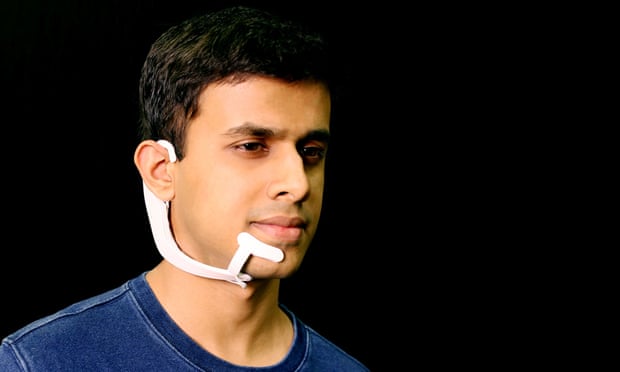Mar 23•5 min read
99 problems and diffusion of innovation is one of them

Who said spreading innovation was going to be easy?
The Industrial Revolution took about 120 years to spread outside of Europe.
The internet took less than 10 years.
The likes of AirBnB, Uber, Lyft, Tinder took a few years or less to permeate our lives.
The time frames within which these innovations spread have fallen dramatically, spreading like wildfire amongst nations at an unrelenting space.
In the NHS it takes roughly 15 years on average for an innovation to be wholly adopted within the entire healthcare system.
How do we keep up with such innovations within an industry such as Healthcare?
How do we know which ones are good or not so good?
How do we go about managing all of this?
The current healthcare innovations and breeding grounds coming from places such as DigitalHealth.London, MedCity HQ, Digital Catapult Centres, the AHSN (Academic Health Science Network) are fantastic and are making impacts where they are used. Embedding these innovations into current healthcare systems and teams across the UK has been hit and miss, and problematic for the entire system and the future of healthcare within the NHS.
“Take dramatic technological change as an invitation to reflect about who were are and how we see the world” says Klaus Schwab in his book ‘The Fourth Industrial Revolution’.
:format(webp):no_upscale()/cdn.vox-cdn.com/uploads/chorus_asset/file/8867575/transformers_the_last_knight_movie_images_5.png)
Why does the NHS in struggle with diffusion and adoption of innovations so badly?
If we can somehow harness these innovations it would mean having more opportunities to shape the healthcare we need and how it is provided. It means examining ourselves and the underlying health and social care providing scene, what does it currently give us and how? Do the models of care work? Do they provide opportunities to help form, shape and continuously improve the system of providing these models of care, by the very people who are patient/client facing.
Looking at other industries to view their progress with digital applications and innovations, is good to see what they are doing, how do they diffuse, get adoption rates to excel and to the right people, if it works why aren’t we adopting something similar?

We only need to look at digital disruptors like Netflix, Uber, Citymapper who have had impacts in their industries, with ease of use and what they are trying to achieve for the future.
Just check out Citymapper’s ‘Project Grasshopper’ smartbus free hop on and off route around Somerset House, Waterloo and Blackfriars’s, the experimental pop route has these two dates to try it out 9th and 10th May. The reason behind this project and their thinking, is that they believe buses and their routes have not evolved much and seek to use data and users to see what can become of this for the future, a smart city using a smartbus (check out the insides of the bus).
Could these be adapted for hospital transport? An arduous journey where patients are told to be ready two hours before their pick up time!
Where is the Future Smart healthcare?
It is coming but is sadly slow.
I recently read how MacMillian nurses (as well as consultants and GPs) can now, via their smart card, have fast track access to the DS1500 form; for people who are terminally ill and have less than six months to live.
This was made possible by cross government working from the DWP and NHS Digital. Co-designing and co-existing, recombining two services to meet the needs of the user; the patient.

Or even how neurological teams could use this new technological advance of hearing the ‘internal voice’ developed by MIT called the ‘AlterEgo’ for patient use, could this help with people who have communication problems?
Watch the video here of it in use.
I suppose what I am trying to highlight is the apparent lack of awareness and knowledge of what products and technology are available to every day healthcare workers and patients, as this is the group that appear to be unaware of the majority of innovations within healthcare and what is out there that they could use within the front line of their jobs. Where do they go to find out all about these new products and innovations?
Could they be a part of research trial team so that more data can be gathered and innovations reworked or new innovations grow from this? Clinical Commissioning Groups (CCG’s) within the UK (there are over two hundred of them!) look at trial data to see if it is worth investing to spread this within their regions.
There needs to be a breeding ground of ideas, for everyone to be involved, where innovations are published and a melting pot that all can access, easily and find out to put to good use. There’s potential out there being wasted and it’s time to do something about it.

Attaining attain the required understanding of what is needed means we have to address the low understanding across the entire system around innovation, technology and digital products.
Rethinking how the healthcare system could embed innovation directly into current and future care pathways.
A framework of relationship for governing the diffusion, spread and adoption is needed.
We need to starting doing and cultivating a network of diffusion and awareness and a belief in continually trying with no overly critical voice and avoidance's to failure, to fail is a good thing it means you’re one step closer to whatever it is your seeking.
How can we start to achieve this?
By 2020, 50% of the UK population will be 50 or over.
We have to start thinking differently, we need to, now.
